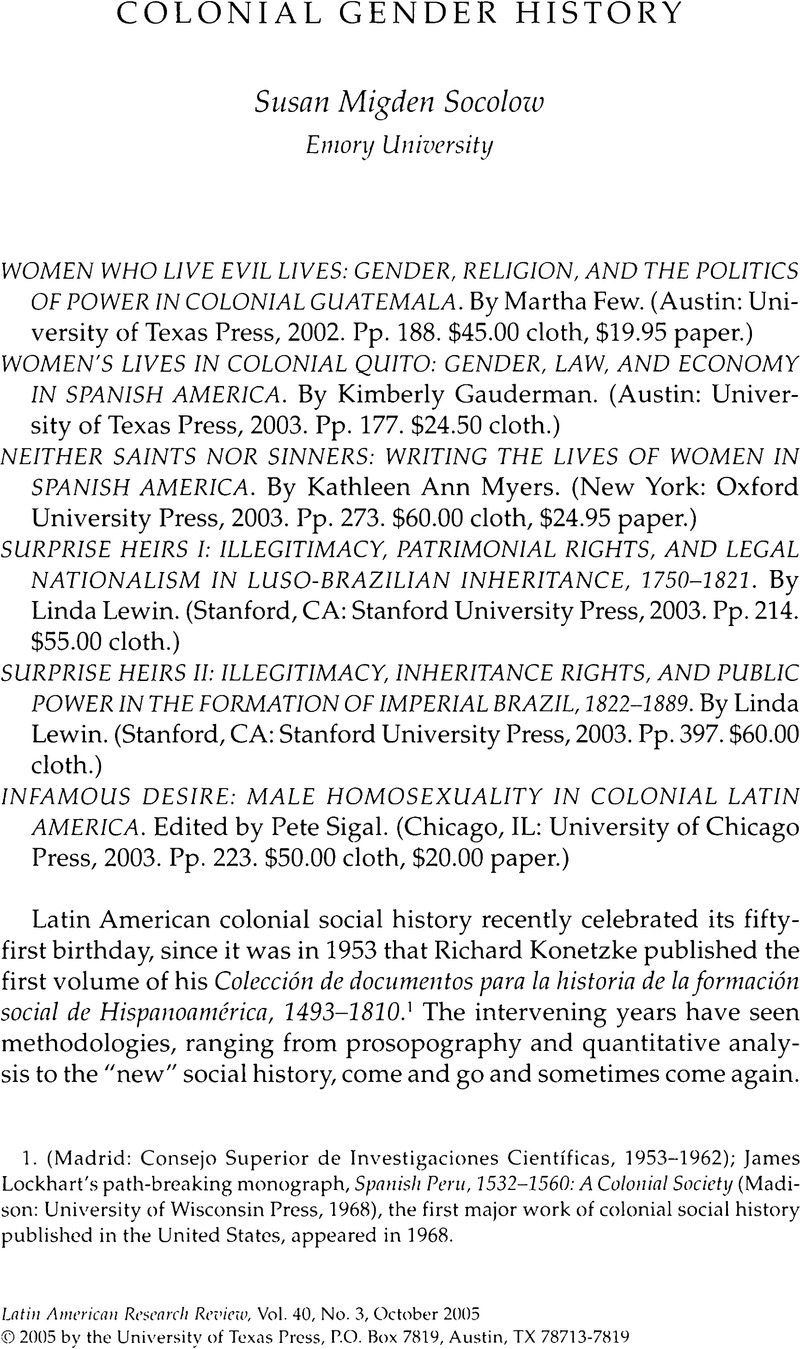Published online by Cambridge University Press: 05 October 2022

1. (Madrid: Consejo Superior de Investigaciones Científicas, 1953–1962); James Lockhart's path-breaking monograph, Spanish Peru, 1532–1560: A Colonial Society (Madison: University of Wisconsin Press, 1968), the first major work of colonial social history published in the United States, appeared in 1968.
2. (Westport, CT: Greenwood Press, 1978).
3. Ruth Behar published an article on women and witchcraft as early as 1987. Ruth Behar, “Sex and Sin: Witchcraft and the Devil in Late-Colonial Mexico,” American Ethnologist, 14 (1): 34–54 (February 1987). See also “Sexual Witchcraft, Colonial, and Women's Power: Views from the Mexican Inqusition,” in Sexuality and Marriage in Colonial Latin America, edited by Asunción Lavrin, 178–206 (Lincoln: University of Nebraska Press, 1989).
4. For example, Stern repeatedly shows how women manipulated the system as best they could by using patriarchal kin and elders to support them in their marital quarrels. Boyer argues that it was women who often brought bigamy charges against their wandering husbands.
5. (Stanford, CA: Stanford University Press, 1988).